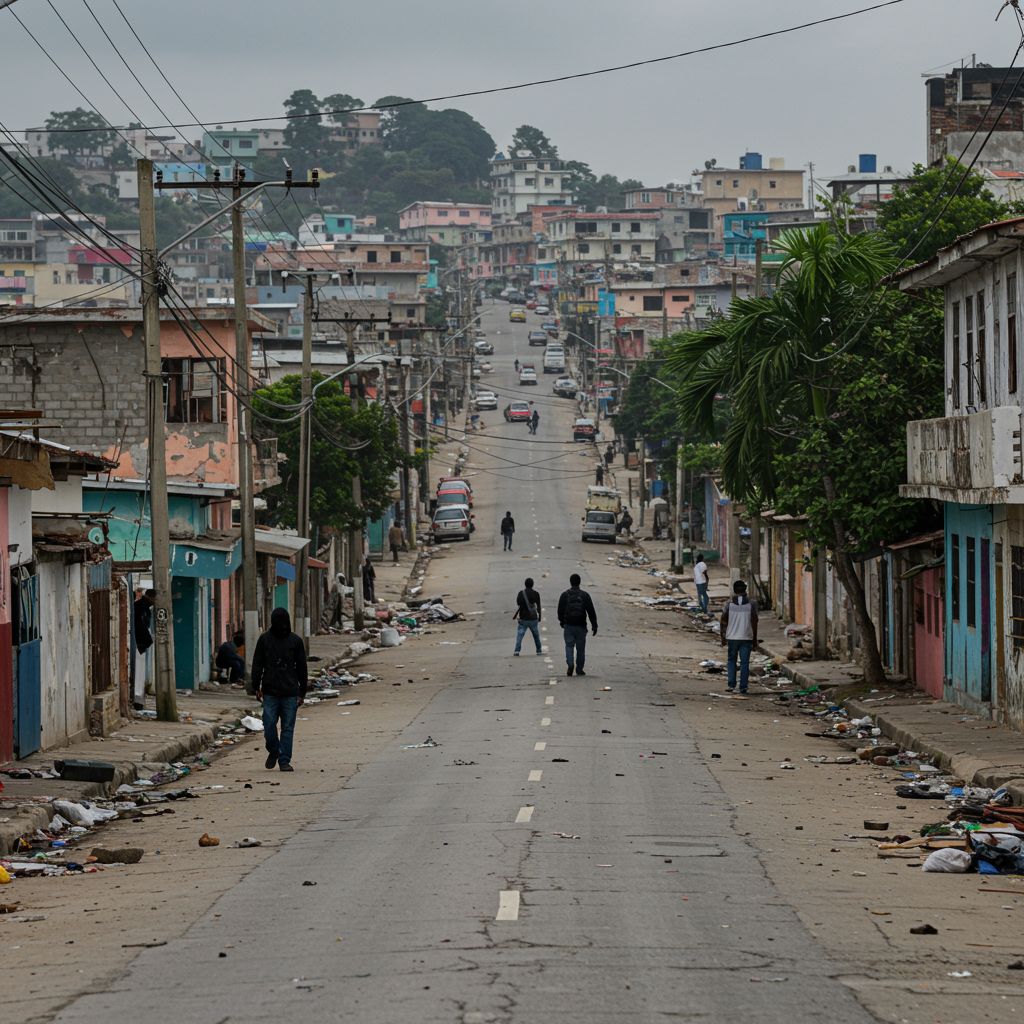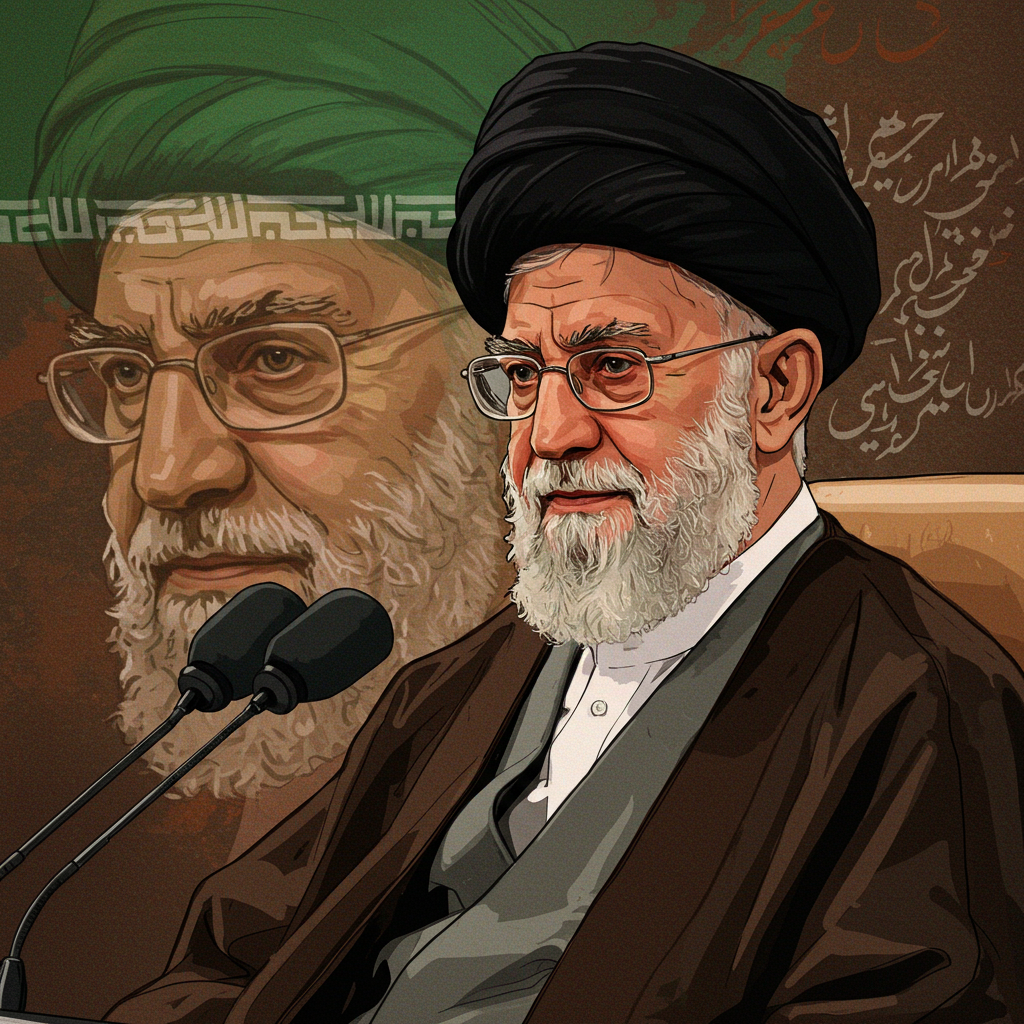Haiti’s capital, Port-au-Prince, faces an unprecedented crisis as criminal gangs seize “near-total control,” United Nations officials reported recently. This alarming development signals a rapid deterioration of security across the impoverished Caribbean nation, pushing the state towards potential collapse without significant international intervention. The expanding influence of these powerful criminal groups is not only paralyzing daily life but also dismantling the very foundations of governance and commerce.
Gangs Tighten Grip Across Port-au-Prince and Beyond
Senior U.N. officials have issued stark warnings about the escalating violence. According to Ghada Fathy Waly, executive director of the U.N. Office on Drugs and Crime, an estimated 90% of Port-au-Prince is now under the command of criminal organizations. This figure represents a significant increase from previous estimates and highlights the gangs’ growing power since the 2021 assassination of President Jovenel Moïse, an event that left Haiti without a head of state.
The gangs are not merely consolidating their hold on the capital. They are actively expanding their reach into surrounding areas and previously untouched regions. This expansion includes Southern Haiti, which had remained relatively insulated from the violence until recently but now sees a sharp rise in gang activity. Criminal groups are also exploiting crucial land routes and key border crossings, such as Belladere and Malpasse, where reports detail targeted attacks on police and customs officials. This strategic expansion aims to solidify control over vital trade corridors.
Expanding Territorial Control and Its Strategic Goals
The gangs’ relentless pursuit of territorial control serves multiple purposes. Beyond simply asserting dominance, capturing these areas provides criminal groups with additional sources of revenue and significantly boosts their bargaining power. U.N. experts highlight that these aggressive attacks are sometimes supported by individuals seeking to destabilize Haiti’s transitional political process for their own political gain. This intertwined dynamic of criminality and political maneuvering complicates efforts to restore order.
State Authority Crumbles Amidst Gang Dominance
As gangs expand their control, the state’s capacity to govern is rapidly diminishing. Ghada Fathy Waly of the UNODC explained that criminal groups are stepping into the void left by the absence or severe limitation of public services. In areas under their command, gangs are effectively establishing “parallel governance structures,” mimicking state functions but operating outside the law.
The control of major trade routes by these groups has crippled legal commerce. This disruption has led to severe shortages and soaring prices for essential goods, such as cooking fuel and rice, which is a staple food for many Haitians. Miroslav Jenca, U.N. Assistant Secretary-General, described the situation as an “ongoing gang encirclement of Port-au-Prince.” He warned the U.N. Security Council that the gangs’ strengthened position “is pushing the situation closer to the brink.”
The Real Threat of State Collapse
Jenca delivered a sobering assessment: “Without increased action by the international community, the total collapse of state presence in the capital could become a very real scenario.” This isn’t just a political collapse; it risks a complete breakdown of public safety, essential services, and the rule of law, plunging an already vulnerable population deeper into humanitarian crisis. The state’s inability to project authority creates a fertile ground for criminal elements to flourish unchecked.
International Support Efforts Face Hurdles
In response to the deepening security crisis, a U.N.-backed Multinational Security Support Mission, led by Kenyan police, arrived in Haiti last year. However, this mission faces significant challenges. It remains critically understaffed and underfunded, currently operating with only approximately 40% of the 2,500 personnel originally envisioned.
Further complicating matters, a proposal put forth by U.N. Secretary-General Antonio Guterres in February to provide the Kenya-led mission with non-lethal support – including drones, fuel, ground and air transport – has stalled within the Security Council. This lack of fully realized international support leaves the mission with limited capacity to effectively counter the heavily armed and well-organized criminal groups now dominating the country. U.N. experts caution that without much stronger international assistance, the gangs will continue to hold “the upper hand.”
Escalating Human Rights Abuses
The unchecked power of gangs has resulted in a severe increase in human rights violations. Over the last three months, vigilante self-defense groups, which have rapidly grown in number and activity, reportedly killed at least 100 men and one woman suspected of gang association or collaboration. While some of these groups claim to protect their communities, U.N. officials note that others act illegally and may even collude with the very gangs they ostensibly oppose.
One of the most disturbing trends is the significant rise in sexual violence perpetrated by gangs. The U.N. political mission in Haiti documented a staggering 364 incidents of sexual violence involving 378 survivors in just a two-month period, from March to April. This horrific tactic is often used by gangs to terrorize communities and consolidate control.
Concerns Regarding State Actor Conduct
Adding another layer of complexity to the security landscape are worrying reports concerning the conduct of state actors. U.N. experts have pointed out that vigilante groups often include local police officers, some of whom are reported to actively participate in human rights violations. Furthermore, the Haitian National Police themselves have been implicated in a “worrying number of extrajudicial killings.” Specialized police units reportedly carried out 281 summary executions of suspected gang members in 2024 alone, a figure that tragically includes 22 women and 8 children. These allegations raise serious questions about accountability and the rule of law within the state’s own security apparatus.
Root Causes and Political Turmoil
A recent report by U.N. experts, covering the period from last October through February, shed light on the underlying factors enabling the gangs’ rise. The experts concluded that criminal groups have expertly exploited Haiti’s ongoing political turmoil and the disorganized, fragmented response to the security crisis.
They specifically pointed to competing political ambitions and persistent allegations of corruption within Haiti’s transitional governing bodies. These internal political dysfunctions have effectively stymied coordinated action needed to address the crisis. The report emphasized that little substantive progress has been made toward restoring public security or implementing the roadmap for organizing national elections, which were tentatively planned for February 2026.
Weaponry and the Arms Embargo
Despite a U.N. arms embargo intended to limit weapons flowing into Haiti, gangs continue to acquire increasingly powerful firearms. Investigations reveal that these weapons are sourced not only from regional civilian markets but also, disturbingly, from police stockpiles within Haiti itself and the neighboring Dominican Republic. This access to sophisticated weaponry further emboldens the gangs and outmatches the capabilities of the struggling Haitian National Police and the limited multinational force. Addressing the flow of illegal weapons is a critical, yet currently failing, aspect of tackling the crisis.
Frequently Asked Questions
What is the current estimate of gang control in Haiti’s capital, Port-au-Prince?
Senior U.N. officials report that criminal gangs now control an estimated 90% of Port-au-Prince. This represents a significant increase and indicates the gangs have achieved “near-total control” of the metropolitan area. Their dominance has expanded considerably since the assassination of President Jovenel Moïse in 2021.
How is the widespread gang control impacting daily life and commerce in Port-au-Prince and surrounding areas?
Gang control over major trade routes has paralyzed legal commerce, causing severe shortages and soaring prices for essential goods like cooking fuel and rice. Public services are limited, and gangs are establishing “parallel governance structures.” Violence is escalating, impacting daily life and forcing displacement, while also spreading to previously peaceful areas.
What is the international community doing to address the gang violence in Haiti, and what are the challenges?
A U.N.-backed Multinational Security Support Mission led by Kenya is on the ground, but it is understaffed and underfunded, operating with only about 40% of its planned personnel. A U.N. proposal for providing non-lethal support has stalled. U.N. officials emphasize that stronger international support is desperately needed, as the current efforts are insufficient to counter the powerful and well-armed gangs.
Conclusion
The U.N.’s stark warning paints a grim picture of a capital held hostage by criminal gangs, where state authority is rapidly eroding, and violence and human rights abuses are rampant. The “near-total control” exerted by these groups across Port-au-Prince and their expanding reach pose an existential threat to Haiti’s stability. While international support missions are present, they are clearly insufficient to meet the scale of the challenge. Addressing this crisis requires a multi-faceted approach that includes bolstering security forces, stemming the flow of weapons, confronting state corruption, and supporting governance structures, alongside providing essential humanitarian aid. Without urgent and significantly increased international action, the specter of a total state collapse in Haiti remains a terrifyingly real possibility.




